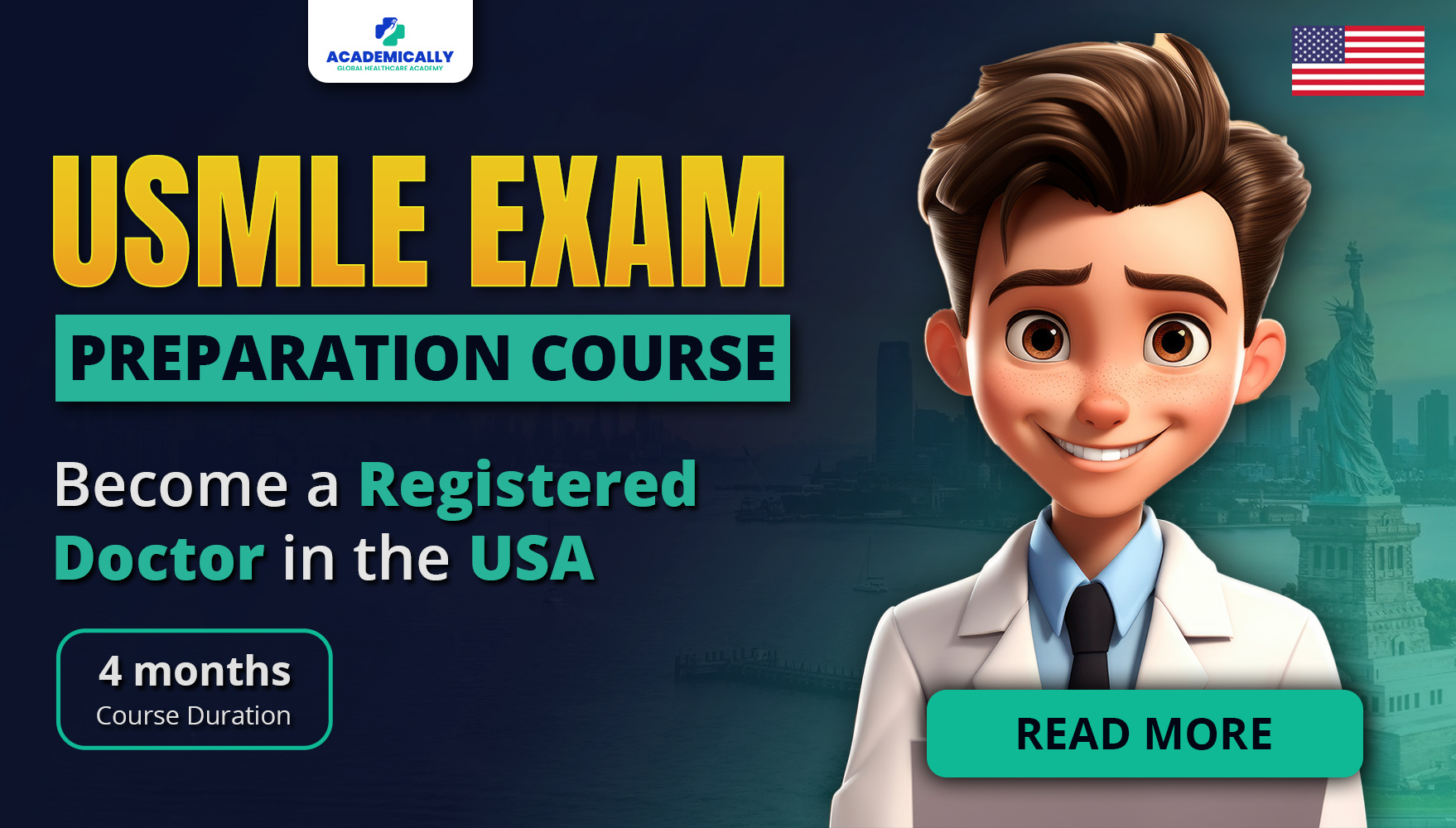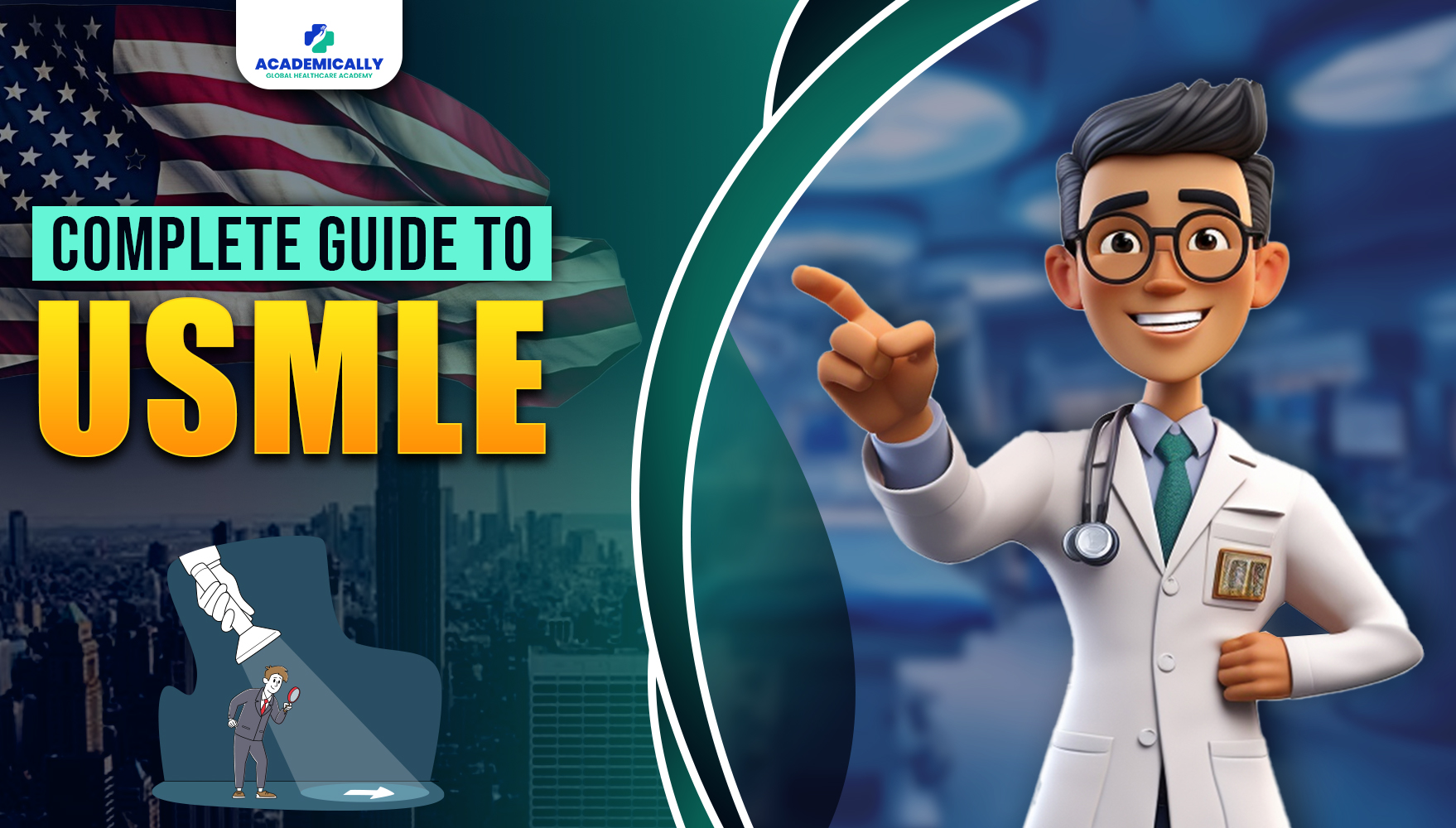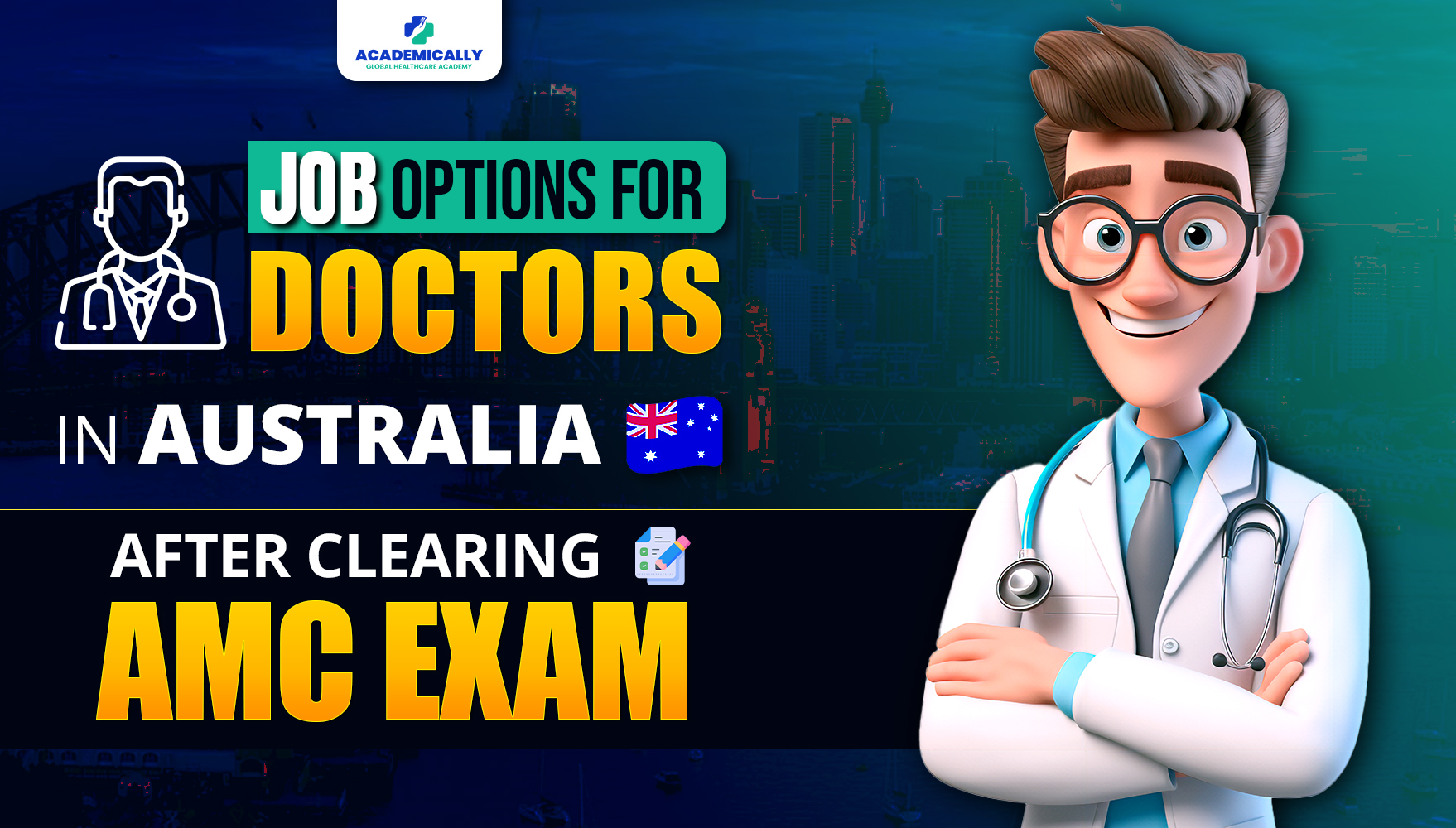What is the USMLE Exam?
The United States Medical Licensing Examination, or USMLE, is a series of standardised exams that medical students and graduates must pass to obtain a medical license in the United States.
This comprehensive assessment is essential for those aspiring to practice medicine in the U.S., and it plays a pivotal role in shaping the careers of future doctors. In this blog, we will delve into the details of the USMLE exam, from its structure and content to preparation tips and its significance in the medical field.

What is the purpose of the USMLE Exam?
Initiated in the late 1980s and fully implemented between 1992 and 1994, the USMLE replaced two prominent medical licensing examination programs of that era: the NBME Part Examination Program and the Federation Licensing Examination (FLEX) program.
The USMLE is crafted to evaluate a medical student's proficiency in applying medical knowledge, principles, and concepts.
Additionally, it assesses their ability to demonstrate essential patient-centred skills for effective and safe patient care practice.
When is the USMLE Exam conducted?
The USMLE (United States Medical Licensing Examination) is conducted throughout the year. There is no specific fixed schedule for the exams. Instead, candidates can choose their exam dates based on availability at the test centres.
What is the eligibility of the USMLE Exam?
To be eligible for the USMLE, the following criteria must be met:
- Candidates must be enrolled in or a graduate of a non-U.S. and non-Canadian medical school listed in the World Directory of Medical Schools, meeting ECFMG criteria.
- Candidates must meet any other criteria set by the ECFMG as mandated.
What is the procedure to apply for the USMLE Exam?
The United States Medical Licensing Examination (USMLE) is a series of exams that medical students and graduates must pass to become licensed physicians in the United States. The process of applying for and scheduling USMLE Steps 1 & 2 involves several steps. Here is a general procedure:
Create a USMLE/ECFMG ID via IWA
Go to the ECFMG (Educational Commission for Foreign Medical Graduates) website and navigate to the "Applying for Examination" section. Click on "Interactive Web Applications (IWA)" to create an ECFMG account and obtain your USMLE/ECFMG ID.
Submit an online application for USMLE Step 1 via IWA
Log in to your IWA account. Complete the application for USMLE Step 1. You have to provide personal information, medical school information, and payment for the examination fees. Submit the required documentation, such as medical school transcripts, to ECFMG.
Schedule a test date via Prometric
Once your application is processed and approved, you will receive a scheduling permit from ECFMG. This permit will allow you to schedule a test date with Prometric. You will need to pay the testing fee to Prometric when scheduling your exam.
How is the USMLE Exam conducted?
Structure
The USMLE consists of three major steps:
Step 1: USMLE Step 1
This is the first part of the USMLE and primarily assesses your knowledge of basic science principles and concepts. It covers topics such as anatomy, biochemistry, pathology, and pharmacology.
The exam consists of multiple-choice questions and is typically taken after the pre-clinical years of medical school. A good score on Step 1 is crucial, as it can significantly impact your residency opportunities.
Step 2: USMLE Step 2 CK (Clinical Knowledge)
This step assesses your ability to apply medical knowledge to clinical scenarios.
Step 2 CK includes multiple-choice questions and covers topics related to clinical medicine, such as internal medicine, surgery, pediatrics, obstetrics, and gynecology, psychiatry, and preventive medicine.
Step 3: USMLE Step 3
This step is taken after you have completed at least one year of postgraduate training. It assesses your ability to apply medical knowledge and skills in the management of patients. The exam includes multiple-choice questions, computer-based case simulations, and practical patient management.
Scoring
Each step of the USMLE is scored on a three-digit scale. The passing score for Step 1, Step 2 CK, and Step 3 is currently 194, 209, and 198, respectively.
While these are the minimum passing scores, the national average typically hovers around 220 for Step 1 and Step 2 CK. A higher score can open up more opportunities for residency programs and specialties.
Significance of the USMLE Exam
The USMLE exam is of immense significance in the medical field for several reasons:
Licensure Requirement
One of the primary reasons for taking the USMLE is to obtain a medical license to practise in the United States. Without passing these exams, you cannot legally work as a medical doctor in the U.S.
Residency Match
USMLE scores play a crucial role in the residency match process. Your scores can influence the likelihood of matching with your preferred specialty and program. Highly competitive specialties often require top-notch scores on Step 1 and Step 2 CK.
Clinical Competency
The USMLE evaluates a candidate's clinical knowledge and skills, ensuring that doctors possess the necessary expertise to provide patient care.
Quality Assurance
The USMLE is an essential component of maintaining the quality of healthcare in the United States. It helps ensure that healthcare providers meet specific standards of competence and knowledge.
Global Recognition
USMLE scores are recognized globally and can open doors for medical professionals to practice in other countries.
Preparing for the USMLE Exam
Preparation for the USMLE exam is a rigorous process that typically spans several months. Here are some key tips to help you excel:
Start Early
Begin your preparation well in advance, especially for Step 1. Many medical students start their preparations during their pre-clinical years.
Use Multiple Resources
Utilise a combination of textbooks, online question banks, and review courses. Popular resources include First Aid for the USMLE, UWorld, Kaplan, and Pathoma.
Plan and Organise
Create a study schedule that covers all the topics you need to know for the exam. Divide your time wisely and allocate more hours to your weaker areas.
Practise Questions
Answering practice questions is a vital part of your preparation. It helps you get used to the exam format and improves your problem-solving skills.
Stay Healthy
Don't neglect your physical and mental health. Ensure you get enough sleep, eat well, and take regular breaks to prevent burnout.
Stay Informed
Keep up to date with any changes in the USMLE exam format or content. Staying informed will help you adapt your study plan accordingly.
Conclusion
The USMLE exam is a cornerstone of a medical career in the United States. It represents a significant challenge for medical students and graduates, but it also plays a crucial role in ensuring the competence of healthcare providers.
Preparing for the USMLE is a demanding journey that requires dedication, hard work, and comprehensive study plans.
However, success in these exams can open doors to fulfilling careers in various medical specialties, shaping the future of healthcare in the United States and beyond.
Fill up this form for a free one on one counselling session.




